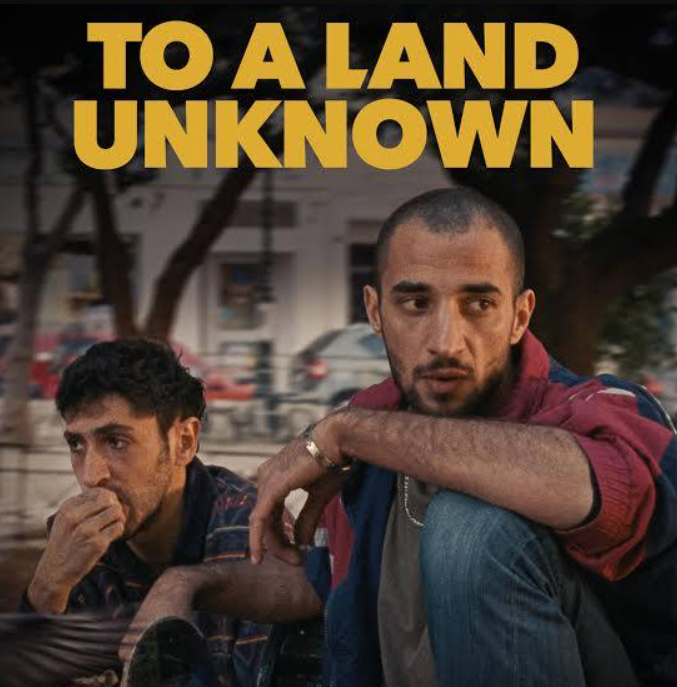Palestinian Film Release - To a Land Unknown

By Rena Elhessen / Arab America Contributing Writer
A new film from Watermelon Pictures will soon be available in theatres nationwide. A year after its premiere, To A Land Unknown will arrive in theatres on July 11th. From Palestinian filmmaker Mahdi Fleifel comes a story of displacement and tragedy in finding identity as a refugee. Already known for his previous works A World Not Ours and A Drowning Man, Fleifel’s latest release is a narrative sequel based on his 2012 documentary, which ends with the film’s subjects in Greece.
To a Land Unknown
Only a film made by a Palestinian filmmaker can fully embody the displacement and longing for a home that comes with Palestinian identity. The film opens with a quote from Edward Said
“In a way, it’s sort of the fate of Palestinians, not to end up where they started, but somewhere unexpected and far away”
This pre-set tone of displacement and longing is seen throughout the story. The film follows two cousins, Chatila (Mahmood Bakri) and Reda (Aram Sabbah), struggling to survive in Athens, Greece. Arriving in Athens from a Palestinian refugee camp in Lebanon, the pair searches for a life outside the continuous displacement. To survive in Greece, the boys become petty scammers, aspiring to steal enough money to afford fake passports to Germany.
As Reda succumbs to heroin addiction and absconds with their savings, Chatila devises a high-stakes people-smuggling scheme. He befriends a thirteen year old refugee child from Gaza and a Greek woman whom he implicates in his scam. To reach their dream, we find the refugees involved in a scheme surrounded by moral ambiguity. With gritty cinematography that evokes 1970s neo‑noir and intense close-ups that accentuate their desperation, the film explores how survival can erode humanity, without ever succumbing to moralizing or sentimentality.
Land Forgotten
Perhaps the most moving element of this film is the introduction of Mahmoud Darwish’s “In Praise of the High Shadow“. This poem was written by Darwish as he fled Beirut in 1982. He wrote it on the deck of one of the ships fleeing the country to Tunisia.
In his work, he criticises the Palestinian fighter in their cause rooted in nationalism. He continues to fight for freedom from oppression, but he opposes the identity of statehood. He argues that Palestinians are stuck in their fight for nationalism, yet they should be free.
The film revisits this quote as the two cousins continue to search for a home away from their state. This introduces a new form of freedom that can be found in the Palestinian loss of state. A freedom from the idea of reclaiming statehood and finding creation within.
Land Lost – Refugee Camps
The main characters of the film are from the Palestinian refugee camps in Lebanon. These camps have a deep-rooted history in the region. Palestinian refugee camps in Lebanon emerged following the Nakba of 1948, when nearly 100,000 Palestinians fled across the border. Initially housed in tents scattered near cities like Beirut, Sidon, Tyre, and north Lebanon, these temporary settlements evolved into permanent, densely populated camps under UNRWA management by the early 1950s.
Today, twelve official camps—such as Ain al-Hilweh, Burj al-Barajneh, Shatila, and Nahr el-Bared—host hundreds of thousands of stateless Palestinians, alongside tens of thousands of Syrian refugees since 2011.
these camps are marked by chronic hardship: overcrowded, ageing infrastructure; limited building permissions; and minimal sanitation and water systems . Under Lebanese law, Palestinian refugees remain classified as “foreigners”—denied citizenship, barred from owning property, and excluded from dozens of professions, relegating many to low-wage labor.
Want more articles like this? Sign up for our e-newsletter!
Check out our blog here!








